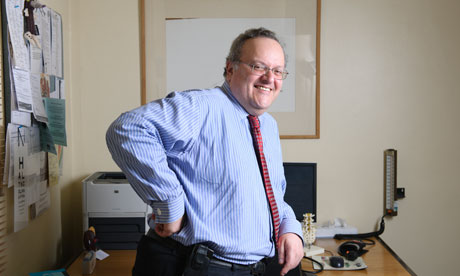A chance to make a real difference for patients and carers!
Putting patients first
A major change to the way GPs in England commission local health services will take place in April – and it offers board members of clinical groups the chance to make a real difference for their communities

While debate was raging at Westminster about the government’s NHS reforms, groups of GPs across England were quietly going about the job of setting up the boards tasked with steering through major changes to the service. Clinical commissioning groups (CCGs), which take over from primary care trusts in April, are designed to put GPs in the driving seat when it comes to commissioning services in their area.
The new boards have a big job ahead. Not only are there significant pressures on budgets, but the fallout from the Mid Staffordshire NHS Foundation Trust inquiry means, more than ever, the spotlight is on standards of care.
Dr Charles Alessi, chair of NHS Clinical Commissioners, the body set up to represent the new boards, says there are real opportunities for board members to make a difference. “It is a very difficult time for the NHS and perhaps the balance between a robust management style and the clinical dimension needs to be rebalanced,” he says, “with the duty of care to the population taking on a far more important role than it seemed to in the past. For all of us, it’s a new world – it’s very difficult, but very exciting.”
Alessi says the new framework – with boards made up of a majority of GPs, plus lay members and nursing and secondary care representatives – will allow for a new way of working to deliver the best outcomes for patients. “It’s about balance and respecting each other’s skills,” he says. “The new world is not about supplanting the management that exists and replacing it with clinicians, it’s about real co-production.”
For CCG board members, the changes are already apparent. Dr Steve Kell is chair of Bassetlaw CCG, which was among the first to be authorised to take over services. It has been working as a shadow board since last year and Kell says there has been an appetite from local GPs and others to get involved in its work.
“The main thing we were looking for [when we recruited to the board] was a passion for involving patients. Everybody feels passionately about the health service and we have had a lot of interest to get involved,” he says. “There’s a definite change about the way we are engaging with the public. I’m optimistic we can make a difference and that people can see that passion.”
Board membership requires commitment. A chair such as Kell must split their week between their commissioning role and general practice, while lay members are expected to devote several days a month to the role. Will they all be up to the job? A report for the Department of Health published in January raised concerns about the support available for lay members to get to grips with their role, but CCGs say they have been gearing up for the challenge.
Significant strides
Dr Amanda Doyle, chief clinical officer for Blackpool CCG, says: “For GPs, particularly those who are new to commissioning, the biggest challenge is thinking about commissioning for a whole population rather than for individual patients. The thought processes are very different. It’s an ongoing process and we have people with different degrees of experience. But we have made significant strides in developing people’s capabilities, skills and knowledge.”
On the lay member side, Paul Newman – a communications director, who sits on Salford CCG – says there has been good support available; for example, for those who do not work in the NHS to understand the service’s finances. But Newman says he is not there to get too involved at an operational level.
“I don’t have a clinical background, but I don’t need it for the discussions we have. I am trying to bring a punter’s view,” he says. “Debate is encouraged at meetings and it’s about input from people who don’t necessarily have experience of the nitty gritty of the NHS, but who have other experience. I do feel part of a team that’s pulling in a very positive direction, no matter what challenges the NHS faces.”
http://www.guardian.co.uk/voluntary-sector-network/2013/mar/14/putting-patients-first






